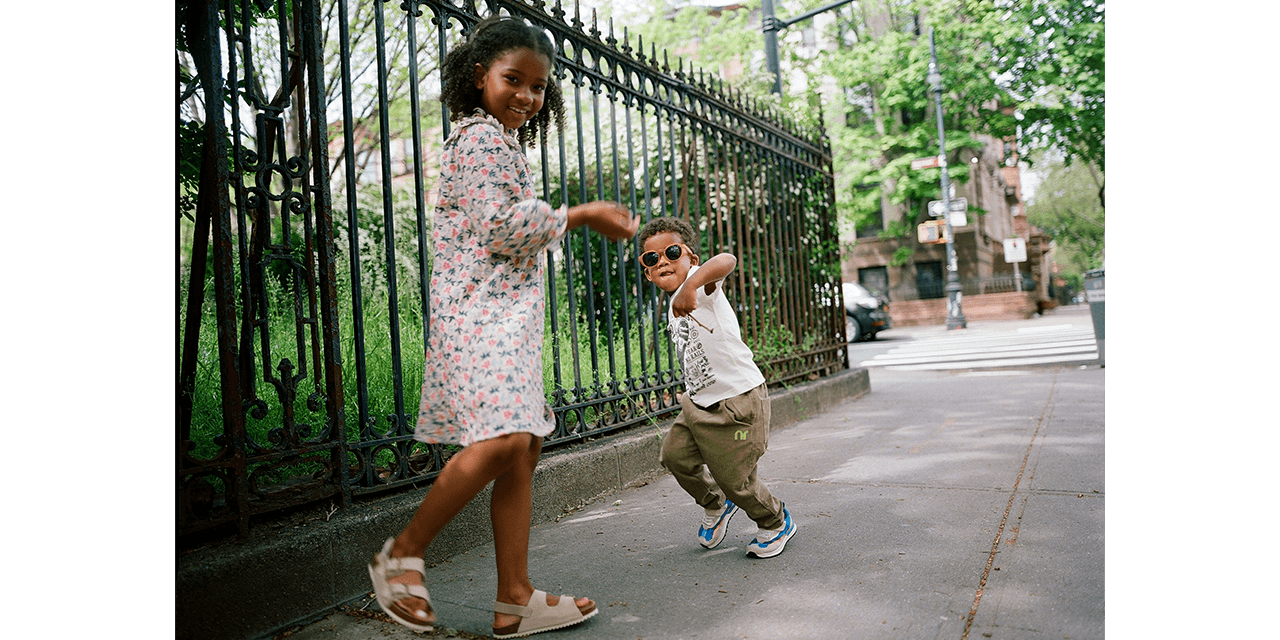
Positive Parenting
5 Ways To Help Your Toddler Get out the Door in the Morning
- Photography
- Judy Pak
- Written By
- Blanca Velazquez-Martin
They may resist getting dressed, sitting through breakfast may be challenging, and you can't find their other shoe when you're finally heading out the door. You're not alone in facing these morning battles, which only feel more significant when paired with your young child's big emotions. Before you know it, the morning routine becomes the most chaotic part of your day.
Establish a morning rhythm.
The power of routine! Clear expectations and a predictable order of events work in your favor as the young brain shapes to navigate frustrations and build self-regulation skills. Dr. Maria Montessori noticed that children are in a sensitive period for order through the age of 6 years. This does not only refer to an organized environment but a need for predictability in the routine they follow.
Research has pointed to the positive impact of establishing a daily routine on the child's ability to nurture concentration skills and healthy socio-emotional development. When a child can orient themselves into a predictable daily rhythm, their brain can better navigate stressors, challenges, and transitions from one part of the routine to the next. This ability is essential to support their ongoing efforts to develop self-regulation skills and increased self-awareness, gradually becoming more cooperative.
Ahead a few ways to set yourself up for success and make for a mellow morning:
Prepare Yourself.
You started reading this hoping for tips on a smoother process to get your kid ready to start their day—but are you ready to get out the door? Ensure your core needs, whatever you consider them, are taken care of as part of the morning rhythm so you can guide your child through theirs. Maybe it's 5 minutes alone with your coffee, your skincare routine without a child climbing on you, or a few minutes to catch up with NPR before you start your day. It will not always work, but aiming to wake up before your child to make space for a core self-care need or ritual can be the key to remaining calm and connected as you help your child move through the morning routine.
Follow a consistent order of events.
Keep a consistent schedule for waking up and getting out the door. For example, first, we wake up, then we get dressed and read a book before we head to the kitchen for breakfast. We then pack our lunch bags together before we get out the door. You don't need to accomplish each item to a specific minute, but maintain a predictable routine for your child.
Consider adding a visual layout for your rhythm for your child to familiarize with, a tool that can help them have a concrete understanding of any changes to the routine should you need to make adjustments in the future. For example, print out pictures from spaces in your home that are part of the routine (their toothbrush at the sink, their seat at the table, their wardrobe, their chair at the doorway), and line them up in order at a place that is visible to your child.
Offer your child autonomy within their daily self-care routine.
It may seem counterintuitive, but building opportunities for your child to engage in the different steps of the routine independently can lead to the purposeful engagement you hope for to get the morning moving along.
It may seem counterintuitive and will take a few more minutes, but offering more independence during these times can go a long way toward collaboration when it's time to:
• Brush teeth
• Comb hair
• Change diapers or go to the toilet
• Decide what's for breakfast
Make morning essentials visible and within reach.
Parents often ask, "Will they ever learn to put their shoes on?" or "Must I always be the one remembering *their* backpack?" They will help put their shoes on and remember their own backpack—but the environment has to be prepared for them to do so.
• For backpacks and lunch boxes, designate a space in the fridge or a low kitchen drawer.
• For jackets and hats, install a hook or hanger so they can reach them themselves.
• For shoes and socks, place a basket by the door to their room or near your entryway.
Give kids choices.
When a portion of the routine is met with a battle, ask yourself, "How can I offer my child more control." Here are a few go-to solutions for everyday morning battles:
If you're battling over what to wear: choose kids' outfits together the night before or limit available choices to have 2-3 options that suit the weather available for them to decide.
If you're arguing over what to eat: Make a lunch or breakfast menu for the week ahead of time with their input.
If you need help with the transition to breakfast: Consider how they can join the table independently. For example, can they climb their chair? Or have two cups to pick from for drinking? Can you invite them to choose the fruit on the oatmeal that morning?
If they don't want to get in the car: They have to go, but the choice can be how they get there. Is it marching to their favorite song? Racing to see who gets there first? Holding hands or getting carried? Or do they want to choose if you take the short or the long way to get to school? You can still get your goals met with them as collaborators in the process.
Prepare to slow down and avoid interrupting.
Applying all the strategies above may take more time and prep. Still, it is time you invest in building your child's confidence, belonging, and a sense of purpose within a routine that also belongs to them. In the process, you're making critical developmental skills such as executive functioning, motor skills, concentration, and self-regulation.
Expect imperfect but powerful results. The outfit may not match, and after brushing their teeth, we may need to take a turn to ensure they're properly cleaned. Ensure your child's efforts are valued as they are, which is the absolute best your child can do–today. As you continue making space for practice, their skills will fine-tune, their confidence will grow, and your
Slow down, and allow for processing time. For example, it may take the young brain 8-10 seconds to process a simple request such as "time to put your shoes on." Before you lose your cool or decide to take over, allow time for the brain to work on the steps to take next.
Have a built-in time buffer. Both for your child and for you! It offers your child more leeway to work through challenges, and it may free you from the time pressure that makes you feel in a rush and dysregulates your emotions when it is time to head out the door.
Blanca Velazquez-Martin

Inspired by her journey as a certified Early Intervention specialist, research professional, clinician and parent, Blanca launched Whole Child Home as a space to share some of this research and leave you with evidence-based information that you can use to help support your child’s development at home.
Whole Child Home integrates inspiration from the Montessori philosophy. The Montessori method is based on scientific observation, and now has research to support its principles as ways to enrich many areas of child development—of the whole child.
development—of the whole child